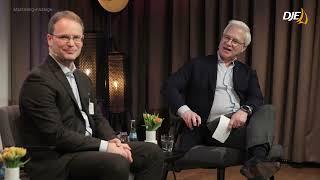| George Friedman writes the free weekly column “This Week in Geopolitics” (http://www.mauldineconomics.com/subscribe-twig) for Mauldin Economics. Subscribe now and get an in-depth view of the forces that will drive events and investors in the next year, decade, or even a century from now. — When Russian President Vladimir Putin ordered his air force to withdraw from Syria last month, geopolitical expert George Friedman said it wasn’t about Syria at all. The move was part of an elaborate US–Russia negotiation over Ukraine’s sovereignty. Speaking in a Mauldin Economics video, Friedman said US Secretary of State John Kerry’s trip to Moscow last week was another step in a process that may not be going well. We know this because shortly afterward, the US said it would deploy additional forces to Eastern Europe. The Pentagon said it would send an armored brigade to the Baltic region and two more brigades for deployment in 2017, to counter “an aggressive Russia.” Friedman notes that while three brigades should deter any Russian incursions to the small Baltic states (Lithuania, Latvia, and Estonia), they would be no threat to Putin’s Ukraine goal. If Ukraine can’t be a Russian satellite, Putin wants it to at least stay neutral. He sees a western-friendly regime in Kiev as an unacceptable threat. Also significant are recent comments by leaders in Belarus, the Moscow-friendly state sandwiched between the Baltics, Poland, Ukraine, and Russia. They suggested the US should be part of any settlement, which Putin will likely read as a sign he can’t trust Belarus, either. Russian military planning has long relied on the Baltics, Belarus, and Ukraine as its buffer zone against potential European foes. The idea of US combat forces taking up positions there is something Putin can’t easily accept. While, Putin’s military buildup isn’t yet ready to take any further action in Ukraine, Friedman says the buildup is continuing. Putin will, if he desires, be ready for stronger action against Ukraine by 2017. That possibility explains why the US is also building forces in the region. No one on either side wants war, says Friedman. The military deployments and redeployments are like pawns on a giant chessboard. The US and Russia are jockeying to get the most favorable outcome. Friedman says extended tension is likely as Moscow and Washington each hope the other caves in. Russia hopes the US will lose patience and accept a settlement. Meanwhile, the US thinks financially strapped Russia will go broke if forced to wait. Neither side is fully confident it can win, so look for the rhetoric to grow more intense. |
Tags:









































